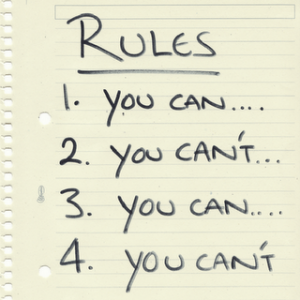August 26, 2016

Words are those innocuous things we all come across every day that inspire, motivate, delight and anger us in equal measure. We can’t survive without them, because they encourage us to continue learning, better ourselves and right the world’s wrongs.
Quite often, the people behind those words are professional copywriters. Just like some of the most prolific songwriters, they usually reside behind the scenes, away from the limelight and content to simply produce their best work which is subsequently taken by others and thrust into the spotlight.
So subtle is their work, in fact, that the time spent on every sentence is easily overlooked. And that’s no bad thing – in fact, it simply proves they’re doing a brilliant job.
It’s time to swing the spotlight around and aim the beam at copywriters. Here’s 6 common misconceptions about their craft that could do with a spot of debunking:
1. The short stuff is easy
Copywriting isn’t all about drafting long product descriptions and ‘About Us’ sections for websites. Sometimes, a copywriter will be called in to help form a strap-line – just a single sentence. But is that easier than writing 2,000 words?
Not quite. In fact, some of the most difficult copywriting tasks are the ones where very little needs writing. The fewer the words, the more impact they need to have and the trickier it becomes to create something that grabs the audience’s attention.
There are many reasons people leave websites without buying, and a poorly-written sentence is near the top of the list. That’s why copywriters always sweat the small stuff.
2. Copywriters work a regular 9-5
Unless employed by a larger business and thus bound by fixed working arrangements, few copywriters work a standard 9-5. Most revel in the creativity afforded by rising early and heading straight to the keyboard, coffee in hand.
Although it doesn’t always feel like it, our minds our at their most creative early in the morning, which is why so many wordsmiths prefer that time of the day. Creativity can also strike (and vanish) at any time, which is why most copywriters work very flexible, dynamic hours.
3. Every copywriter uses a MacBook
The image of copywriters choosing franchised coffee shops as their main place of work and MacBooks as their digital typewriter is something of a cliche. When it comes to technology and copywriting, the world is changing – rapidly.
The introduction of Apple’s iPad Pro in 2015 and the rise of low-cost yet ultra capable Chromebooks has altered the device landscape considerably. Those who are paid to write thousand of words every week no longer have to rely on expensive, bulky laptops. In fact, this very post is being written on a 9.7” iPad, simply because it offers a focused writing experience no desktop PC or laptop can.
4. Copywriters can get on just fine with flimsy briefs
Hand a copywriter a brief that comprises just four bullet points and they’ll perform their best Oliver Twist impression, begging for more.
Copywriters aren’t miracle workers and anyone who is paid to write words for your business will want to ensure they have a full grasp of the job in hand. Just as a car manufacturer couldn’t get by with a sketch of a vehicle on the back of a beer mat, a copywriter simply can’t produce her best work with a flimsy brief.
The best copywriting is only possible if there is a an equally fantastic brief.
5. A great copywriter can make anything sound exciting
If only this were true. Not every industry is blessed with an exciting range of products and services. We’ll spare potential blushes in this post, but it’s a safe bet you’ll have interacted with something today that is utterly mundane but which some company has had to sell. And you bought it.
Some things remain mundane throughout the marketing process. A copywriter’s job is to elicit interest from the right audience – not excite them into making a purchase.
6. SEO copywriting is completely different to traditional copywriting
A contentious point, this one, and likely to be argued by many a copywriter, but, in my view, there is no difference between SEO copywriting and that which has existed for centuries. They both perform the same function which is to generate interest in a product, service or company.
Rewind a few years, and things were rather different. Search engines could be ‘gamed’ by stuffing keywords into web content and using various tricks to gain as many page views as possible. Unfortunately, this resulted in websites that were completely SEO-centric and devoid of anything that would delight the audience. Put simply, it was paint-by-numbers web copy and it was utterly frustrating to read and interact with.
Now, search engines like Google are far more savvy and won’t stand for any of those old tactics. They value genuine, unique, quality content which means the words produced by copywriters for the web is tuned for the reader, not the search engine. And that makes it identical to copy that was (and still is) placed in magazines and on billboards.
Wrapping up
If you’re considering getting into copywriting, I hope this post has given you the impetus to push on and succeed. Even once you break in and start making a name for yourself, never stop learning. Pick up every guide you can find and regularly debunk the myths above to prove your worth.
Digital & Social Articles on Business 2 Community
(60)





